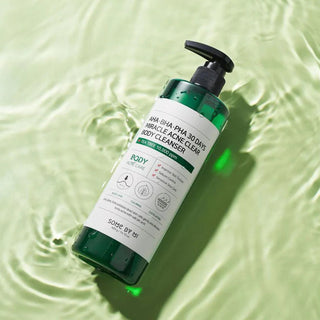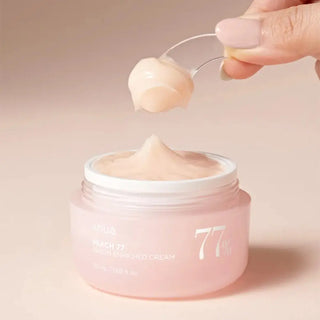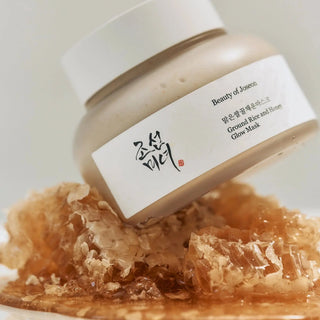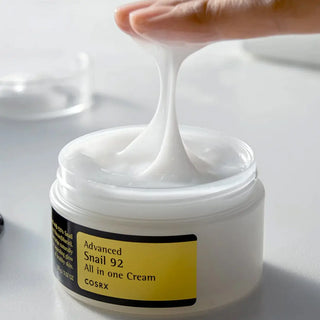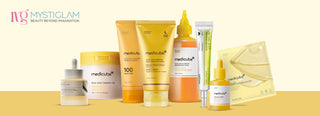Exfoliation is a key part of skincare, but overdoing it is more common than you'd think. People at times exfoliate more than recommended, leading to irritation, dryness, and breakouts. Many people follow random advice online or use harsh scrubs without knowing their skin type. They often believe that the harder they scrub, the smoother their face will be, which isn't true at all.
This blog will guide you on how to exfoliate skin properly using the right techniques and products. We'll explain the science behind exfoliation, the difference between physical and chemical exfoliation, and how to use both safely.
What Is an Exfoliator
An exfoliator is a product or method used to eliminate dead skin cells from the surface of your skin. Dead skin cells naturally shed every 28–40 days, but factors like pollution, stress, and age can slow this down. When dead skin builds up, your skin looks dull and may even break out. Exfoliators help speed up this renewal process, making your skin look fresh, smooth, and glowing.
There are two types: physical and chemical. Physical exfoliators include scrubs with small particles like sugar, beads, or rice powder. They manually scrub away dead skin. On the other hand, chemical exfoliators use ingredients like AHAs, BHAs, or enzymes to dissolve the dead skin cells gently.
When used correctly, exfoliators make your skin absorb serums and moisturizers better, giving faster and better results. But using the wrong one can lead to irritation or even micro-tears in your skin. Picking between chemical and physical exfoliation depends on sensitivity, skin concerns, and how experienced you are with skincare.
Why Is Exfoliation Important for Skin
Exfoliation is one of the effective ways to maintain healthy skin. It does more than just brighten your face; it also prevents clogged pores, helps with acne, and evens out your skin tone. It also stimulates cell turnover. This means newer, younger skin comes to the surface, giving you that fresh glow. However, exfoliating without irritation takes practice and care.
For people with oily or acne-prone skin, exfoliation helps keep pores clear and reduces breakouts. For dry or sensitive skin, it helps smooth the texture and allows better hydration. When done right, it transforms your skin. When done wrong, it damages it.
How Often Should You Exfoliate
Knowing how often to exfoliate is important for avoiding damage. Over-exfoliation is one of the biggest exfoliation mistakes to avoid and can lead to dry, irritated, or inflamed skin. The right frequency depends on your skin type, age, and the kind of exfoliator you're using.
If you have sensitive skin, once a week is enough. For normal skin, 2–3 times a week works well. Oily or acne-prone skin types can be handled 3 times a week if you're using mild exfoliants for the face. However, using a gentle exfoliating skincare product is essential, no matter your skin type.
If you're using chemical exfoliators like AHAs or BHAs, you should start slowly, once a week, and increase if your skin feels fine. Physical exfoliators, like scrubs, should also be used carefully, not more than twice a week, to avoid microtears.
Pay attention to signs like redness, burning, or flakiness. These are your skin's way of saying, "slow down." And never exfoliate irritated or sunburned skin.
How to Exfoliate Skin without Overdoing It – Tips for Exfoliation
- First, always start with clean, makeup-free skin. Dirt and makeup can block exfoliants and reduce their effectiveness. Use a gentle cleanser first to prepare your skin.
- Second, choose the right exfoliator. If your skin is sensitive, go for enzyme-based or lactic acid chemical exfoliants. Oily or acne-prone skin does better with BHAs like salicylic acid. Dry skin responds well to AHAs like glycolic acid.
- Third, follow the instructions on the label. More products don't mean better results. Set a timer if needed, and never leave chemical exfoliants on longer than advised.
- Fourth, follow up with a calming toner, serum, or moisturizer. Products like AA ALMOES serum can help repair and soothe your skin barrier after exfoliation.
- Lastly, always use sunscreen. Exfoliation makes skin slightly sensitive to the sun, increasing the risk of damage or pigmentation.
- Incorporating these steps into your routine will let you exfoliate safely and effectively.
Exfoliation Mistakes to Avoid
Here are the most common exfoliation mistakes to avoid, explained clearly so you can fix them:
Using the wrong product: A harsh scrub for sensitive skin or a strong acid for beginners can cause damage. Pick based on your skin type.
Exfoliating too often: This weakens your skin's barrier and leads to peeling, redness, or even breakouts.
Not removing makeup properly: If you exfoliate over makeup, you're pushing dirt and chemicals deeper into your pores. Always cleanse first.
Using too many products: Mixing exfoliators with retinol or acne treatments in the same routine can cause irritation.
Skipping sunscreen: Exfoliated skin is a bit sensitive to UV rays. Always apply sunscreen in the morning after exfoliating, even if staying indoors.
Ignoring hydration: Exfoliation removes dead skin, but your skin still needs moisture to heal and glow.
Not cleansing properly: Dirt, oil, or leftover sunscreen can mix with your exfoliant and reduce its effects.
Touching your face too much: After exfoliation, your skin barrier is delicate. Touching can lead to infections or breakouts.
By fixing these habits, you'll make your exfoliation routine more effective and safer.
Final Thoughts
Exfoliation can truly change your skin, but only when done correctly. You now understand how to exfoliate the skin using the right method, frequency, and products. From choosing between chemical and physical exfoliation to following smart exfoliation tips, you're better equipped to avoid damage and get real results.
Overdoing exfoliation is a common problem, but by applying what you've learned here, you can achieve bright, smooth skin without harming it.
Want to discover products personalized for your routine? Explore Korean skincare items in the UAE at Mystiglam. From toners to AA ALMOES's serums, you'll find skincare that truly works, especially for those who want glowing skin without irritation.


